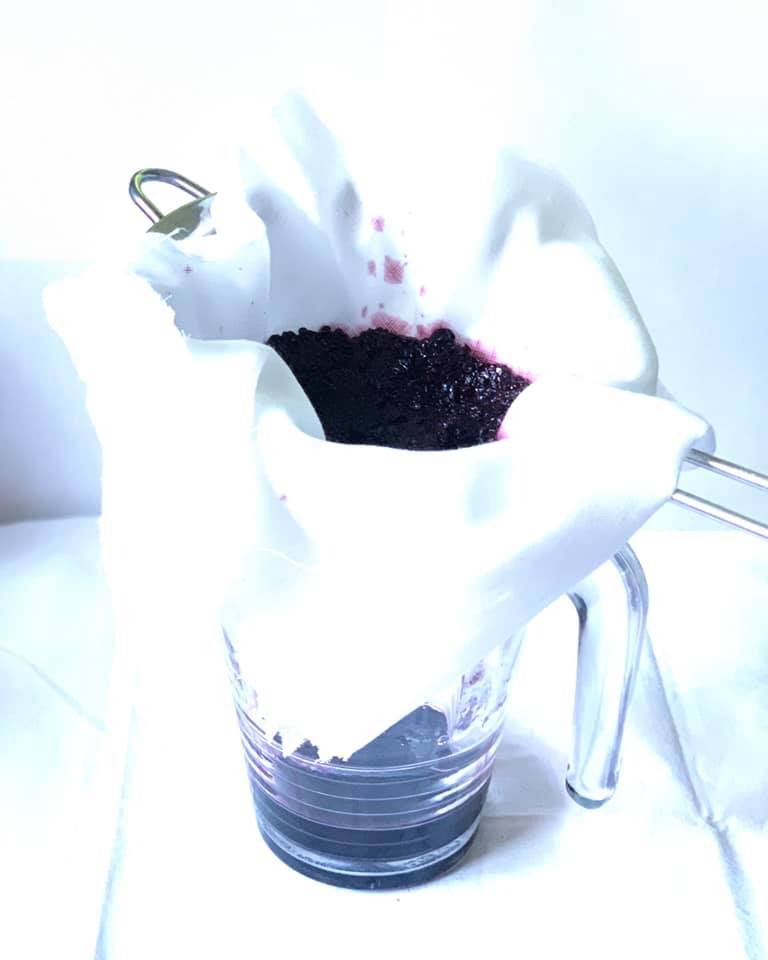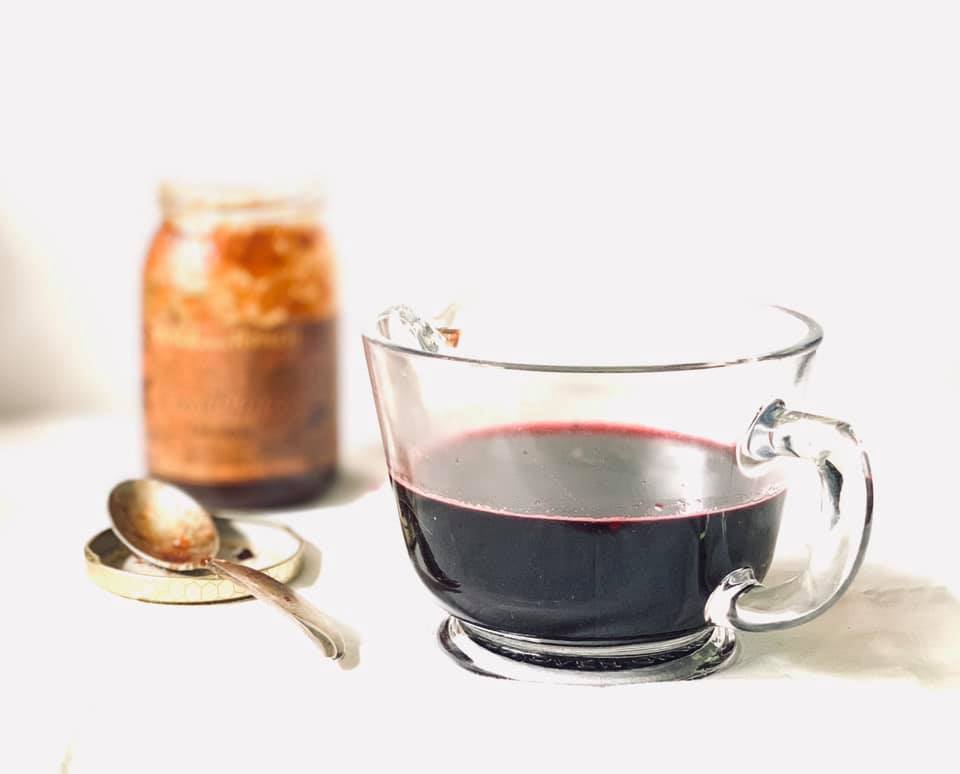Elderberry and blackberry syrup for colds and flu
Autumn is an abundant season for hedgerow foraged foods that can be prepared and stored for less plentiful times.
From late August to October I can frequently be found, secateurs in hand, in the Forest of Dean where the hedgerows are heavy with deep and glossy juicy elderberries and blackberries that simply beg to be turned into many rich treats. Aim high and you won’t be disappointed.
Take this elderberry and blackberry syrup for instance. It is a powerful preparation against cold and flu for the winter months[i]. It’s also delicious poured over ice cream, as a base for a lemonade or add it to kefir or a shot of brandy. This is the first love of the Autumn.
Elderberries cannot be eaten raw as they will make you very ill but when cooked make a potent syrup full of vitamins A, B and C which is said to help ward off and provide relief from colds and flu.
If you have a favourite place to gather elderflowers earlier in the year, be sure to leave the majority so they turn into berries – this is vital food for the birds but also for us too.
Elderberries can be found from August through to October. They are reddish black small berries that hang in clusters when ripe. Blackberries are a natural pairing and ripen at the same time as elderberries. They also contain vitamins A, C, E and many B vitamins. Both berries contain anthocyanins - antioxidants that give them their deep purple colour.
I used raw honey for this preparation as it has a lot of antibacterial and antiviral properties but if you would like to make a vegan version, use yakon syrup or maple syrup instead. Yakon syrup has prebiotic benefits whilst good quality maple syrup, contains minerals. You don’t need to add a sugar, but it acts as a preservative for the syrup. If you want to omit the sugar, freeze the mixture in ice cube trays and defrost enough for a day or two at a time as it can start to lose its benefits quite quickly if not preserved.
Herbs and spices have many restorative properties. Ginger, star-anise, cloves, cinnamon and fennel seeds add sweetness and warmth. Ginger has wonderful anti-inflammatory and antimicrobial properties; cinnamon is a natural antiseptic whilst cloves contain eugenol which can be used to treat inflammation as well as having a touch of menthol to help clear your nasal passages.
Take a tablespoon or two a day for a couple of weeks on and then have a break for a couple of weeks to help build up your immunity against colds and flu.
PRO CHEF NOTES
For this recipe, it doesn’t matter if you use proper measuring cups or a teacup – just use the same measuring tool all the way through.
INGREDIENTS
1 cup elderberries
1 cup blackberries
2 slices fresh ginger
2 star anise
6 cloves
1 6-inch cinnamon stick
¼ teaspoon fennel seeds
2 pieces organic unwaxed lemon peel
5 cups water
2 cups raw honey, yakon syrup or maple syrup
METHOD
Put the blackberries in a bowl and cover with water with a sprinkling of salt added. Leave to sit for 15 minutes giving them a swoosh every now and again. This will remove any unwanted elements that will float to the top. Rinse the blackberries well. Rinse the elderberries and strip them from the stalks taking care to remove any green or under ripe berries.
Add the elderberries and blackberries to a saucepan with the water. Add the ginger, star anise, cloves, cinnamon stick, fennel seeds and lemon peel. Bring to the boil and then simmer for 45 minutes to an hour until the berries are cooked and pulpy and the liquid is reduced by half. Mash the berries - a potato masher is great for this - and allow to cool. It should be rich and syrupy.
Take a piece of butter muslin, fold it in four and line a sieve with it. Pour the mixture through so the berries and spices are strained out and collect the syrup.
Return the elderberry reduction to the (rinsed) saucepan adding your sweetener and warming gently so as not to cook it, particularly if you are using raw honey. Pour into a sterilised bottle and keep refrigerated.
In the refrigerator, this should last up at least for three months or longer.
Without the sugar acting as a preservative, keep it in the freezer in ice cube trays.
[i] Randomized study of the efficacy and safety of oral elderberry extract in the treatment of influenza A and B virus infections. Zakay-Rones Z1, Thom E, Wollan T, Wadstein J. HIS J Int Med Res. 2004 Mar-Apr;32(2):132-40. https://www.ncbi.nlm.nih.gov/pubmed/15080016[i]





